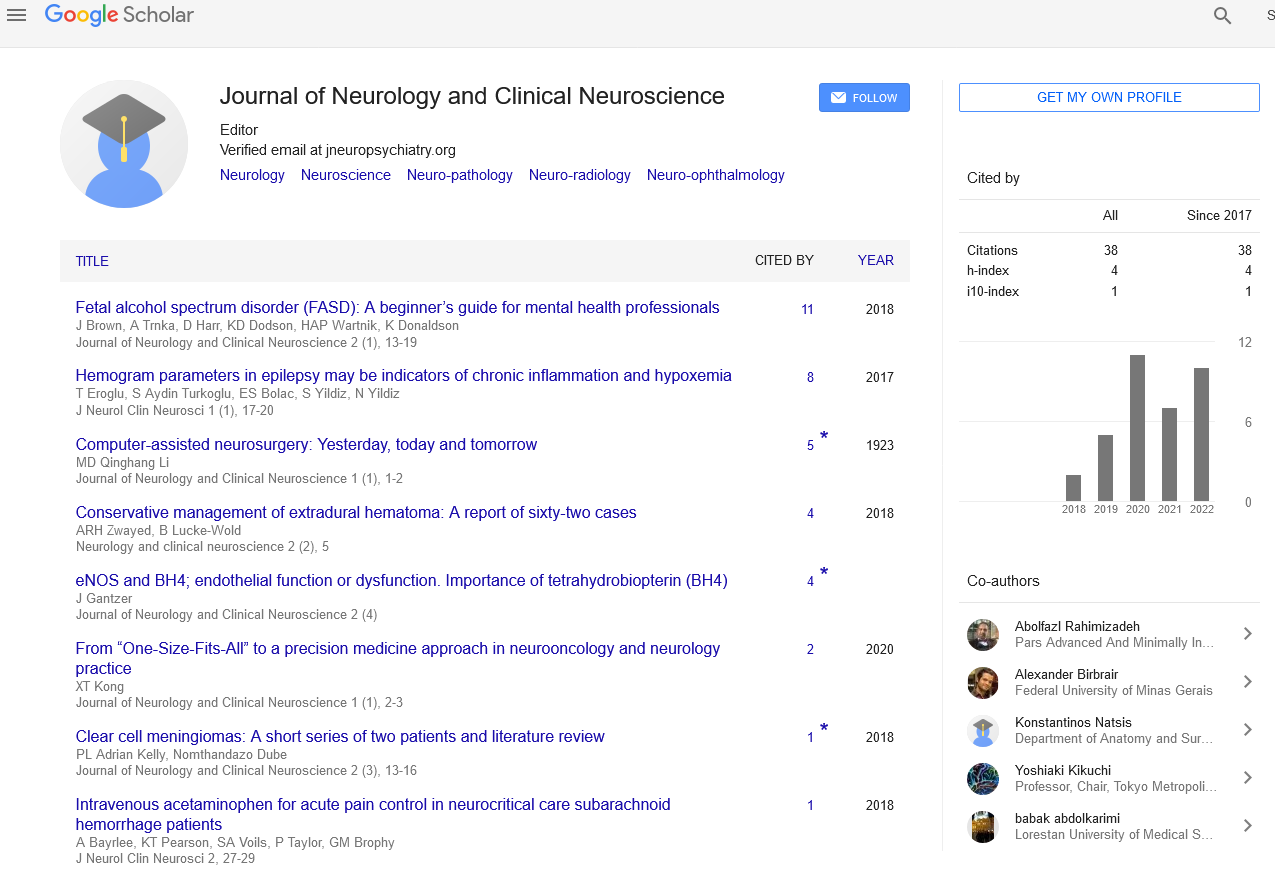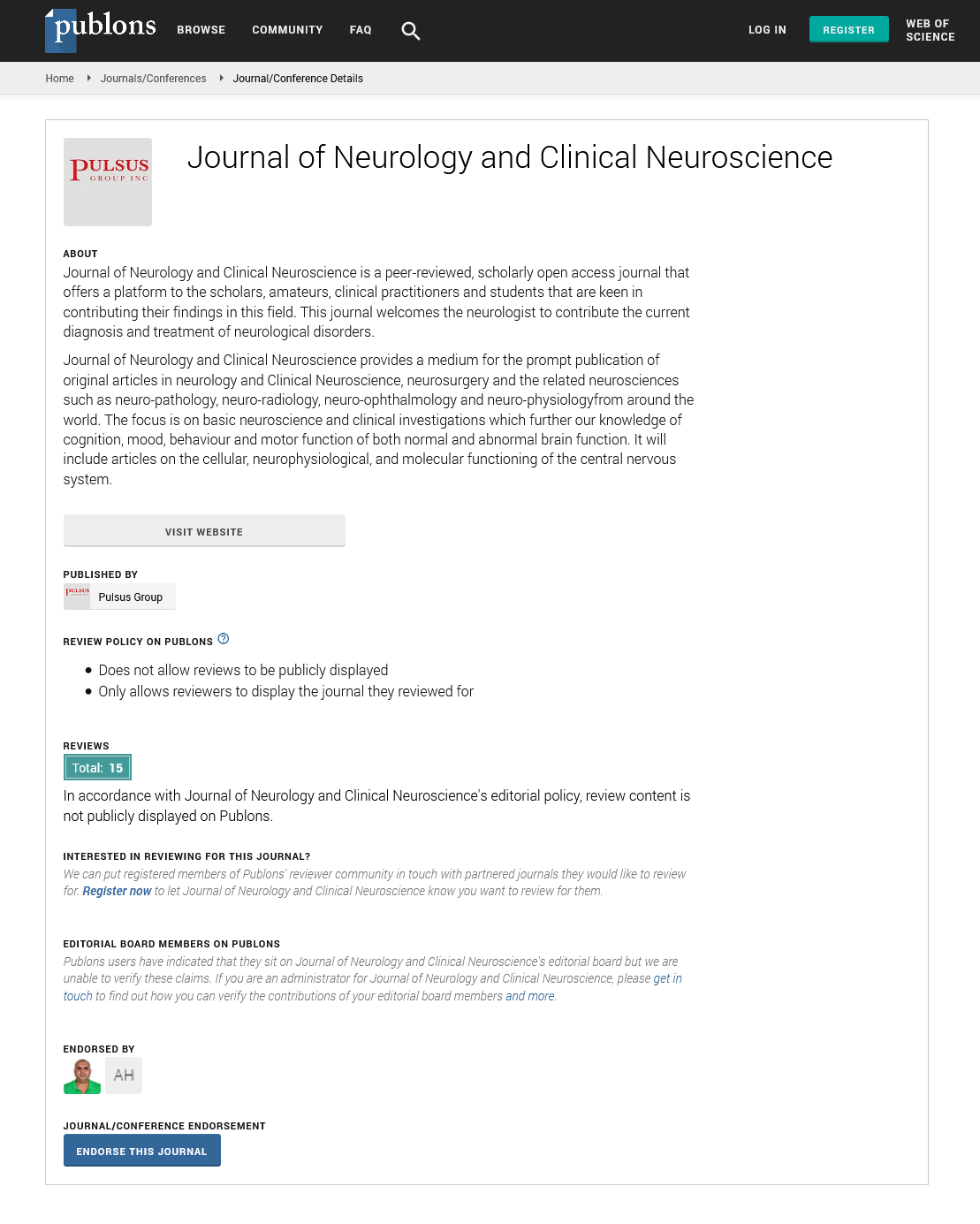Sign up for email alert when new content gets added: Sign up
Tetanus Toxoid Immunization Coverage and Associated Factors Among Postnatal Mothers in Debre Markos Town, Ethiopia
11th International Conference on Parkinsons and Movement Disorders
December 09, 2022 | Webinar
Jembere Yihunnie DT
Addis Ababa University, Ethiopia
Posters & Accepted Abstracts: J Neurol Clin Neurosci
Abstract :
Statement of the Problem: Mothers and newborns are at a high risk of gaining tetanus during the birth process, where maternal tetanus infections are associated with the unhygienic delivery procedure, after abortion and miscarriage. Pregnant women will reduce the risk of neonatal tetanus infection by receiving two doses of maternal tetanus toxoid vaccine. However, in Ethiopia, low levels of immunization coverage, mostly due to missed opportunities, are a concern. The purpose of this study is to assess tetanus toxoid immunization coverage and associated factors among postnatal mothers in Debre Markos, Ethiopia. Methodology & Materials: A community-based cross-sectional study was conducted among 505 mothers who had given birth in the last 12 months. A two-stage stratified sampling technique was applied and participants were selected using a systematic random sampling technique. Data were entered into Epi-Data manager version 4.6.0 and analyzed using Statistical Package for Social Science version 25 software. Bivariable and multivariable logistic regression analysis was performed. Adjusted odds ratios at 95% CI were used to identify factors associated with tetanus toxoid utilization. Findings: The total tetanus vaccine intake (TT+2) doses were found 71.2 %. Mothers who were attended primary school [AOR: 0.07,95% CI: (0.01-0.6)], mothers whose husbands had secondary education [ AOR: 0.26, 95% CI: (0.08-0.84)], mothers attended 2-3 for antenatal care(ANC) visit [AOR: 0.05,95% CI: (0.01-0.3)], good quality service [AOR: 2.8, 95% CI: (1.05-7.5)], appropriate behavior of health workers [AOR: 6.2, 95% CI: (2.2-18.7)] and who visited with health extension workers [AOR: 7.6, 95% CI: (2.3-25.3)] were significantly associated with TT vaccine utilization. Conclusion & Significance: Only three out of four pregnant women received the current TT vaccine during their previous pregnancy. The most influencing factors in TT vaccine utilization were mothers and her husband’s low educational level, ANC visit during pregnancy, standard of health care service, health care provider’s behavior and mothers visited with health extension staff.





